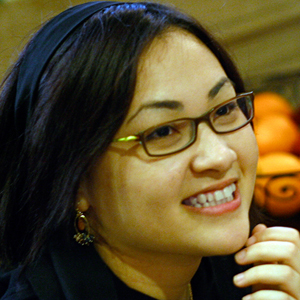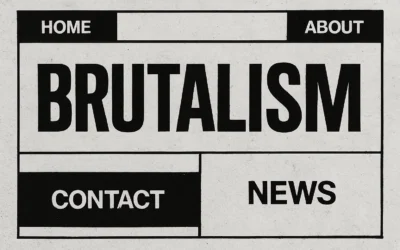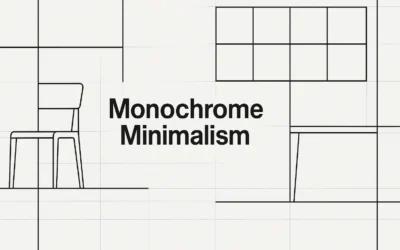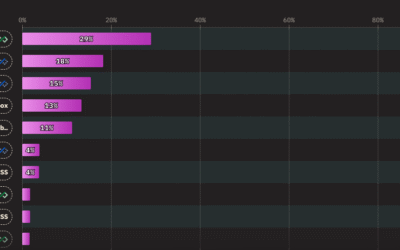 Once again we bring you one of our monthly interviews with design and web professionals, as always our goal is to provide some educational and informative insight into how people work, what inspires them and how they got where they are. This month we have Jina Bolton. Jina is a visual interaction designer working in Silicon valley, she is an author and contributor to many websites and resources on website design including, Think Vitamin, A List Apart and Site Point, she is also a speaker at many web design and interactive conferences around the world.
Once again we bring you one of our monthly interviews with design and web professionals, as always our goal is to provide some educational and informative insight into how people work, what inspires them and how they got where they are. This month we have Jina Bolton. Jina is a visual interaction designer working in Silicon valley, she is an author and contributor to many websites and resources on website design including, Think Vitamin, A List Apart and Site Point, she is also a speaker at many web design and interactive conferences around the world.
How or where do you find inspiration?
Websites, books, magazines, music, galleries, movies… I get inspired in a lot of places, actually. I love modern design (think Design Beyond Reach) with a mix of an earthy feel (like Anthropologie) in furniture, art, clothing, etc., and these styles tend to influence me.
Who is the biggest influence on your work right now?
I have a few really big influences on me, but I would have to say that the biggest would probably be Tiphanie Brooke (antigirl.com). She’s a fantastic artist with a lovely flair in her style that I attempt to have in my own work.
Where are your “design roots� Print or Web?
It’s hard to say. My original design roots is actually arts and crafts. I was constantly drawing and making my own greeting cards and paper crafts. I began playing around with Web and Print at about the same time, and I went to art school to do both (I double majored in Graphic Design and Computer Arts). My career mostly began with web, however, though I had a few print jobs sprinkled here or there.
How important is it to know the history of design?
I think it’s extremely important. I took History of Graphic Design in art school, and I learned so much in that class. It gave me an appreciation for techniques and styles that I may not necessarily take part in. It also helped me understand why certain aspects of design are so important, such as the evolution of typography and why certain methods were used.
Serif or Sans?
I like both, actually. For my personal work, I find myself using serifs a lot. However, for projects outside my own, I find myself using san-serifs. All I care about is a beautiful typeface, regardless of serif or san-serif.
Do you code and design? Are you a “Hybrid�
If you call HTML and CSS “codingâ€, then yes, I am a “hybridâ€. I enjoy taking a project from start to finish: planning, wire-framing, designing, and developing. I leave the back-end stuff to the people that know what they’re doing.
What’s your favorite part of the creative process?
I enjoy the typesetting the most. I can spend hours and hours perfecting the way the type is designed. Whether it’s finding the right font, obsessing over kerning and leading, or fixing “issues†like orphans and widows, etc, this is the phase of designing that I tend to take the longest in. It’s fun. 🙂
What makes your creative process different from everybody else?
I didn’t think it was different. Maybe just that it’s mine? 😉
What do you see as the single biggest shift in the evolution of design over the past 5 years?
I enjoy seeing the burst of exploration within the combination of experience design, and green environmental design. Designers are paying more attention to materials and functionality, and how it affects the people that use them, as well as how it affects our world and our future. This is a field I would love to take part in.
What’s the difference between User Experience and User Interface design?
Well, the words in themselves should give good clues. User experience’s keyword is experience; it’s the experience a user is having when using a product, or website, or whatever it may be — whether it’s a good one or a bad one. User interface design’s keywords are interface design; how an interface has been designed can impact the user experience. User Experience and User Interface design are closely connected, but are not one in the same. Both are beyond the realm of just making things look pretty; it’s about the user.
What makes one a web design professional?
If you make websites for money, you could possibly say you’re a web design professional. However, I know I wouldn’t want to get surgery from a guy who just decided to become a doctor, but hasn’t had any training. I’m not saying you have to go to school to become a web design professional. Experience and research can be everything you need. But if you’ve just picked it up as a hobby, and don’t put the serious time into learning the “right way†to do things, and don’t read up on web standards, then I’ll be honest in saying I will have a hard time believing that you’re a web design professional.
What are designers/developers doing right (or wrong) in the web 2.0 world?
I have no idea. 🙂
What’s your favorite flavor of design or development programs/languages?
As I stated before, I like modern design with an earthy edge to it. As for development, I only work in HTML/CSS. I don’t do any other code than that.
What is your favorite book?
House of Leaves, by Mark Z. Danielewski
What is your favorite movie?
William Shakespeare’s Romeo + Juliet (1996). I know it’s cheesy, but I love it anyways.
Who is your favorite musical artist (or What musical artist are you listening to the most right now?)
I love a lot of different bands. All time would probably be Deitiphobia, but recently, I’ve been a Portishead junkie.
Jina is a visual interaction designer working in Silicon valley, she is an author and contributor to many websites and resources on website design including, Think Vitamin, A List Apart and Site Point, she is also a speaker at many web design and interactive conferences around the world.





0 Comments
Trackbacks/Pingbacks